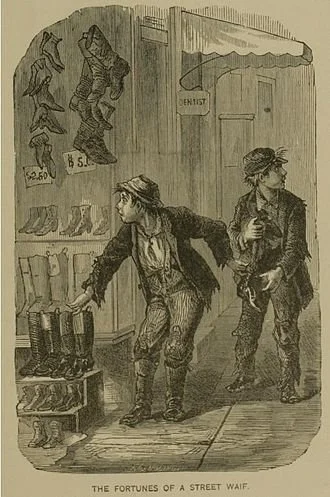Recent Posts
-
![Litigation in Lithuania]()
Litigation in Lithuania
Lithuania’s private law has been a mixture of rules from Germany, France, and Netherlands. In 2004 when Lithuania joined the EU, they not only adopted the regulations that apply to all member states, but they amended other national laws to align with European principles. Today, Lithuanian commercial law is European and modern.
Read More -
![Comments on Recent Cases: February 2026]()
Comments on Recent Cases: February 2026
When a court orders someone to appear for a deposition, the person must appear or get another court order to the contrary. The penalty for disobeying the order to appear, however, can vary. For witnesses who decline to appear, the penalty may be monetary. For parties to the lawsuit, the court may rule the person who failed to appear must lose, but that is not always the case.
Read More -
![More Thoughts on Bench Trials and Jury Trials]()
More Thoughts on Bench Trials and Jury Trials
Commercial dispute plaintiffs in the United States often get to decide whether to have their claims decided at trial by judge or by a jury. Plaintiffs usually choose juries because they may be more sympathetic to the plaintiff’s claims. But there are also compelling reasons for a plaintiff to have a “bench trial,” in which the judge decides the facts of a case.
Read More -
![Real Estate Litigation]()
Real Estate Litigation
A landlord cannot simply kick out a tenant when she does not pay rent. Instead, there is a process to demand rent and, if need be, seek an eviction. But the tenant may be able to explain why she is not paying rent. Litigation may be how the parties ultimately resolve the dispute.
Read More
Litigation Practice
-
![More Thoughts on Bench Trials and Jury Trials]()
More Thoughts on Bench Trials and Jury Trials
Commercial dispute plaintiffs in the United States often get to decide whether to have their claims decided at trial by judge or by a jury. Plaintiffs usually choose juries because they may be more sympathetic to the plaintiff’s claims. But there are also compelling reasons for a plaintiff to have a “bench trial,” in which the judge decides the facts of a case.
Read More -
![Real Estate Litigation]()
Real Estate Litigation
A landlord cannot simply kick out a tenant when she does not pay rent. Instead, there is a process to demand rent and, if need be, seek an eviction. But the tenant may be able to explain why she is not paying rent. Litigation may be how the parties ultimately resolve the dispute.
Read More -
![An Update on Making a Document Production]()
An Update on Making a Document Production
Lawyers need to make sure any potential documents are coded for privilege and redacted, even if the documents are not considered responsive to a document request. This is because a non-responsive document may be produced anyway if it is the family member of—attached to or embedded in—another document that is responsive to a request and thus subject to production.
Read More -
![Replevin Claims]()
Replevin Claims
A plaintiff may not want to wait until the end of a lawsuit to get her property out of the hands of the defendant. Lawsuits could take years. And the defendant, who must not be a good person if she stole the plaintiff’s property, may take bad care of it, destroy it, get rid of it, or hide it.
Read More -
![An Update on Employment Discrimination and Harassment Claims]()
An Update on Employment Discrimination and Harassment Claims
When determining whether to settle, it can be difficult for employees and employers to calculate an appropriate amount for the employer to pay. Unlike a contract dispute, where an agreement can set forth an amount due, there is no natural number that can compensate an employee for discrimination.
Read More -
![More Thoughts on Responding to Document Requests]()
More Thoughts on Responding to Document Requests
Often, parties will make compromises in discovery to avoid the expense and uncertainty of going to court. For example, if a party believes it is entitled to all of a company’s financial records and the recipient believes it is entitled to none, the two may compromise and the recipient may agree to produce some specific financial records.
Read More -
![More Thoughts on Drafting Interrogatories]()
More Thoughts on Drafting Interrogatories
Interrogatories may also be useful to define what an adversary’s claims or defenses are. To that end, a party may ask an opponent to identify each fact that supports its claims or each instance of misconduct that it alleges. Although a party may be able to ask the same questions to a party at a deposition, an interrogatory is more likely to get a useful response and less likely to get an “I don’t know offhand” or some other incomplete answer.
Read More -
![More Thoughts on the Enforcement of Judgments]()
More Thoughts on the Enforcement of Judgments
If a defendant does not voluntarily pay a judgment, the plaintiff must find assets that belong to the defendant and collect them. This process may be easy for some defendants if they have well-known assets or if details about their bank accounts were shared in discovery. But for others, plaintiffs may need to hire an investigator or use public records (like property records or vehicle registrations) to find assets.
Read More
Interviews
-
![Litigation in Lithuania]()
Litigation in Lithuania
Lithuania’s private law has been a mixture of rules from Germany, France, and Netherlands. In 2004 when Lithuania joined the EU, they not only adopted the regulations that apply to all member states, but they amended other national laws to align with European principles. Today, Lithuanian commercial law is European and modern.
Read More -
![Litigation in Lebanon]()
Litigation in Lebanon
Lebanon has a first instance court, which is like a county court in the United States. After that, a party can appeal to an appeal court, an after that there is the Cassation court, which is derived from the French court system. That court only hears cases, though, when the appeals court judges disagree or when there was an error at the appeals court.
Read More -
![Litigation in Liechtenstein]()
Litigation in Liechtenstein
Liechtenstein has enforcement agreements only with Austria and Switzerland, except in arbitration matters where it has joined an international enforcement convention. In civil proceedings without arbitration, it may therefore be necessary to re-litigate the case entirely in Liechtenstein.
Read More -
![International Arbitration]()
International Arbitration
There are a few cases of procedures for the independent production of evidence to be used in a forthcoming arbitration, which are not usual in a civil law jurisdiction. Documentary evidence is filed in the case docket. In case the tribunal grants document production, depending on what's produced, it's for the tribunal's eyes only, it's blackmarked, or it’s filed for all access.
Read More -
![Litigation in the Kyrgyz Republic]()
Litigation in the Kyrgyz Republic
At present, paper filings are still required in Kyrgyzstan. Pleadings must be submitted in person or by courier. There is no nationwide electronic filing system for courts yet, although limited email communication is sometimes allowed.
Read More -
Litigation in Egypt
Lawyers are required to wear a robe during hearings—it is very similar in shape and color to the traditional French robe, reflecting the influence of civil law traditions in Egypt.
Read More -
![Gathering and Preserving Evidence in Litigation in Argentina]()
Gathering and Preserving Evidence in Litigation in Argentina
Our national procedure system (or Procedure Code) establishes two big ways of producing evidence before trial, even though both of them requires the involvement of the judge and, in one of them, of the counterparty also.
Read More -
![Litigation in Estonia]()
Litigation in Estonia
Lawyers do not wear a robe and should instead wear formal business dress, though sometimes they dress casually.
Read More

















Commentary
-
![Comments on Recent Cases: February 2026]()
1771825461698
-
![Comments on Recent Cases: January 2026]()
1769379588780
-
![Comments on Recent Cases: December 2025]()
1766977566729
-
![Comments on Recent Cases: November 2025]()
1764555675753
-
![Comments on Recent Cases: October 2025]()
1761496737912
-
![Comments on Recent Cases: September 2025]()
1759151180796
-
![Comments on Recent Cases: August 2025]()
1756123161817
-
![Comments on Recent Cases: July 2025]()
1753707414615
More CommentaryComments on Recent Cases: February 2026
When a court orders someone to appear for a deposition, the person must appear or get another court order to the contrary. The penalty for disobeying the order to appear, however, can vary. For witnesses who decline to appear, the penalty may be monetary. For parties to the lawsuit, the court may rule the person who failed to appear must lose, but that is not always the case.
Read MoreComments on Recent Cases: January 2026
It is important for defendants in litigation to promptly respond to a complaint. If they do not, a plaintiff may obtain a default judgment against them. But courts still apply strict rules to plaintiffs seeking default judgments.
Read MoreComments on Recent Cases: December 2025
To prevail in litigation, it is not enough that someone did something wrong. A plaintiff needs to sue the correct defendant, usually the one responsible for the wrongful action. Sometimes, however, plaintiffs sue someone who did not do the wrong thing, and claim this defendant “aided and abetted” the wrongful actor.
Read MoreComments on Recent Cases: November 2025
When parties agree to arbitration instead of litigation, courts will defer to an arbitrator to make most of the rulings in a case. And while an arbitrator may decide whether the case before her is the kind of case the parties agreed to arbitrate, a court may still decide if any valid arbitration agreement exists.
Read MoreComments on Recent Cases: October 2025
Courts may dismiss litigation on summary judgment when there is no evidence that supports one side. Sometimes a party’s own self-serving statement may not be enough evidence to preclude summary judgment and justify a trial, but often it is.
Read MoreComments on Recent Cases: September 2025
Courts typically defer to the decisions of arbitrators, even when they believe that the arbitrators made a mistake. This is because federal law implements a policy where people can rely on arbitration being quick and final and not just the first step towards a lengthy litigation process. Still, people still attempt to appeal in court and, sometimes, they win.
Read MoreComments on Recent Cases: August 2025
Courts typically defer to the decisions of arbitrators, even when they believe that the arbitrators made a mistake. This is because federal law implements a policy where people can rely on arbitration being quick and final and not just the first step towards a lengthy litigation process. Still, people still attempt to appeal in court and, sometimes, they win.
Read MoreComments on Recent Cases: July 2025
While a plaintiff in litigation can recover money owed without a written contract on the principles of basic fairness, the existence of a written contract often prohibits recovery on fairness or “equitable” grounds. But litigants often debate when a written contract exists.
Read More